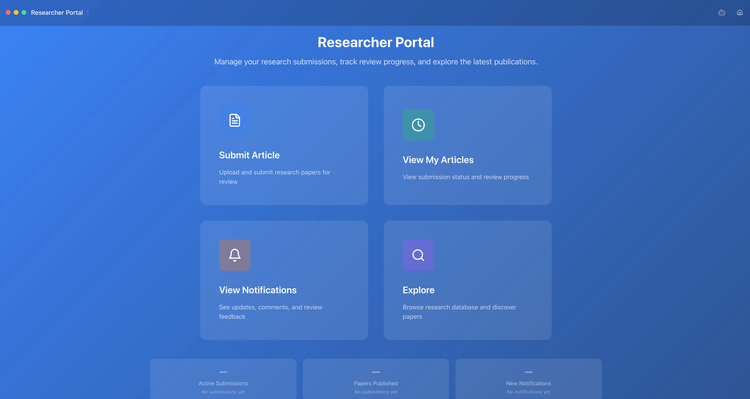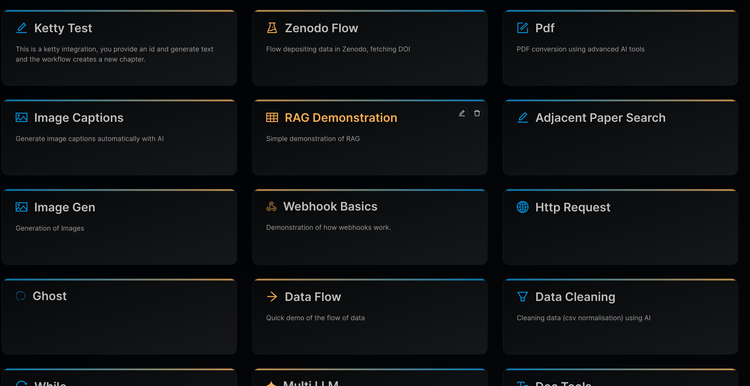PubPub's Strategic Pivot: Insights from a Similar Journey

As a long-time observer and participant in the scholarly communications landscape, I've been watching PubPub's recent developments with great interest. They seem to be making a significant pivot in their strategic direction, one that resonates deeply with my own experiences in this field. In this post, I'll dive deep into PubPub's recent changes and the potential challenges they face, drawing parallels with our own journey at Coko.
I want to be transparent about my perspective from the outset. As the founder of Coko and the driving force behind platforms like Kotahi, I've traveled a path similar to the one PubPub is now embarking upon. My intention in writing this piece is twofold: to share insights from our journey at Coko, and to contribute to the ongoing dialogue about the future of open publishing platforms. While Coko and PubPub offer different solutions, we share a common goal of advancing open, accessible scholarly communication.
The scholarly communications field is complex and multifaceted, with room for various approaches and solutions. By offering my perspective, I aim to add to the collective understanding of the challenges and opportunities in this space. I hope that by sharing our experiences, including both successes and missteps, I can provide valuable insights for PubPub, other platforms in the field, and the wider scholarly communications open infrastructure community as we all navigate this evolving landscape.
The PubPub Landscape and Its Recent Shift
PubPub, a multi-tenant platform designed to host content for individuals and organizations within the scholarly communications ecosystem, has been a notable player in the field. Founded by Travis Rich during his time as a student at MIT, PubPub is operated by Knowledge Futures, a non-profit organization dedicated to developing tools and frameworks for open knowledge sharing and innovation in scholarly publishing.

Recently, PubPub announced a significant change in direction that has sent ripples through their community. They stated:
We will not provide a free, centrally-hosted version of PubPub Platform at this time. Groups that wish to use it for free will be able to self-host it. Groups that wish to transition to other platforms will be able to use export tools that we will provide.
This announcement marks a dramatic departure from their previous model, moving away from their current community-focused technology (now referred to as "PubPub Legacy") and transitioning to a new technical framework called "PubPub Platform."
Understanding PubPub's Rationale
Knowledge Futures explains their rationale:
Over time, alternative publishing modes have become more mainstream. As the pace of research quickens and the stakes of keeping new knowledge behind paywalls (or within years-long publication processes) rise in the face of major global challenges, we find ourselves having different kinds of conversations about how people can implement PubPub to make their information useful. These groups require more flexibility and customization from us, which PubPub Legacy cannot provide.
This rationale resonates with the challenges we've faced at Coko. Scholarly Communications is indeed "snowflakey," with each publisher or group/emergent model demanding technology that caters to their unique workflows and content types. PubPub seems to have recognized this limitation in their current platform, which offers little flexibility for diverse workflows.
Ironically, this minimal approach has been a key part of PubPub's appeal. By avoiding complex scholarly communications processes in favor of a simple write-and-publish model similar to blogging, PubPub found its place in the market. I've often characterized PubPub Legacy as a streamlined publishing system that combines blog-like simplicity with academic credibility through DOI integration. The fact that this straightforward approach is considered innovative in scholarly communications underscores both PubPub's ingenuity and the field's ongoing modernization challenges.
Community Reaction and Affordability Concerns
The pivot has prompted varied reactions across the sector, with some users expressing deep concerns about its potential impact. One of the most vocal responses came from COPIM (Community-led Open Publication Infrastructures for Monographs), who raised thoughtful questions about the transition's impact on affordability and inclusivity. They noted:
[...] the new annual hosting fees appear to be fixed at 3500 USD
This significant cost increase has left many existing users, particularly those with limited budgets, wondering about their future on the platform. COPIM expresses concern:
The removal, in May 2025, of the option for a free, supported community service on PubPub will be a major issue for many of the communities and journals the platform currently supports.
COPIM points out that PubPub has been home to numerous inspiring publishing projects, including "mediastudies.press, darkmatter journal, Reviews in DH, AfricArXiv, Creative Commons for Books, and many more." Many of these projects might face difficult questions about how to continue in the wake of this news.
These concerns appear to be well-founded, based on my recent interactions. Several PubPub users have reached out to us directly, exploring alternative hosting options for their projects. What's particularly telling is that even organizations with the financial means to afford the new fees are expressing reluctance. These conversations reveal a widespread discomfort with the proposed pricing structure, suggesting that PubPub may be overestimating the market's willingness to pay for their rebranded service.
The Paradox of Migration and Community Retention
Knowledge Futures' plan to rebuild their platform presents a paradoxical situation that may significantly impact their existing community:
- Time-consuming Rebuild: KF will invest considerable time and resources into rebuilding their platform, ostensibly to better serve their existing community. However, this process may leave them in a position where they're simply recreating what they already have, but with fewer users.
- Migration Hurdles: For existing projects to benefit from this new platform, they'll need to migrate their content. Content migration is a daunting task that projects typically avoid unless absolutely necessary, usually justified by significantly improved functionality and/or reduced costs.
- Cost Increase for Same Experience: KF is proposing that users who currently pay nothing should not only migrate their content but also pay a substantial fee for what they describe as "an equivalent experience to PubPub Legacy." The likelihood of free users willingly undertaking this process seems low, especially given the lack of apparent benefits.
These factors combined suggest a high probability that a significant portion of the current community will abandon the platform if KF continues on this path. This leaves KF in a precarious position:
- They might proceed with building a platform very similar to their current one, but for a much smaller user base.
- They could decide not to build the new platform at all, effectively rendering their current promises empty.
While I don't believe that Knowledge Futures is acting in bad faith, the outcome might appear that way to their community. Unless they maintain an unwavering focus on building a new platform regardless of user retention (which seems financially unsound), they risk appearing to have made promises they can't keep.
What Exactly are They Building?
While PubPub's exact plans aren't entirely clear from their public communications, private discussions, a careful parsing of their announcements (particularly from Sept 24 - see below), and a conference presentation by them I attended (at Force2024) have shed light on their strategic direction. It's crucial to understand that Knowledge Futures isn't simply rebuilding their platform to replace 'PubPub Legacy'. Instead, they're taking a more ambitious approach: they're developing a comprehensive technical framework upon which they plan to build multiple applications, including a replacement for PubPub Legacy.
This strategy closely mirrors our approach with CokoServer at Coko. They're creating a flexible technical foundation that will enable bespoke development for various publishing needs. The key distinction is that PubPub Platform isn't intended to be a single product, but rather a versatile framework capable of supporting multiple, customized publishing solutions.
At Coko, we pursued a strategy remarkably similar to what PubPub appears to be proposing. We developed CokoServer, a flexible, customizable technical framework designed to serve as a foundation for a wide range of publishing needs. Over the years, we successfully leveraged CokoServer to build 15 publishing platforms, including our own Kotahi and Ketty, as well as projects for notable organizations such as DataCite, NCBI, HHMI, Caltech, EPMC, and eLife.
From my perspective, their current platform, with its minimal workflow capabilities, lacks the architectural flexibility needed for the extensive customization they're aiming for. It appears they agree and have decided to completely overhaul their technology stack and build in significantly greater abstractions.
While PubPub's approach of building a comprehensive framework is ambitious, it's worth considering the alternatives available in today's technological landscape. Super generic platforms can be constructed using existing open components. Event handling frameworks, workflow engines, headless CMS solutions, identity services, and other such tools can be integrated to create versatile systems. This approach can potentially reduce development time and costs while still achieving a high degree of flexibility. So why do we need PubPub Platform? This question becomes particularly pertinent when considering the resources required to build a new platform from scratch versus leveraging existing, proven solutions. The answer likely lies in PubPub's specific vision and requirements (which they might not have fully figured out themselves), but it's a question worth exploring as we consider the future of scholarly communication platforms. This uncertainty around their exact needs could explain the broad, ambitious scope of their planned platform, but it also raises concerns about the efficiency and focus of their approach.
The Delicate Art of Abstraction: Lessons from Kotahi
Drawing from our experience with Kotahi and other platforms, I can attest to the complexities PubPub is likely to face in their pursuit of a more flexible, abstracted technical approach. Abstraction in software development is a delicate art, requiring a careful balance of several factors:
- Level of Abstraction: How generic and flexible should the system be?
- Speed of Delivery: How quickly can new features or platforms be developed?
- Costs of Development: How much time and resources are required for development and maintenance?
Abstraction, while powerful, comes at a cost. The more abstract and flexible a system is, the more expensive and slower it typically is to develop. This is because each layer of abstraction adds complexity, requiring more thorough testing and often more sophisticated architecture.
Our experience at Coko has taught us that, at some point, you have to commit to a specific domain to achieve an optimal balance between abstraction and practicality. This is particularly true in the case of scholarly communications, where domain commitment allows for strategic compromises that can significantly reduce development time and costs.
We recently made a strategic decision that illustrates this point: we will no longer continue building various platforms on top of CokoServer. Instead, we're focusing our efforts on developing Kotahi and Ketty, our domain-specific platforms for scholarly communications.
This decision comes after a decade-long journey. We spent approximately 10 years building out the abstractions in CokoServer to support virtually any kind of platform. This extensive development was necessary to generate the revenue that funded the creation of more specialized platforms like Kotahi. Now, with these pretty mature domain-specific platforms, we can make more interesting and efficient compromises between abstraction, development time, and cost.
To illustrate this, let's consider the management of Digital Object Identifiers (DOIs). In scholarly communications, DOI management is a critical, domain-specific process that requires significant effort on both front and back ends. In a highly abstracted system like CokoServer, we needed to build a generic "identifier management" system capable of handling DOIs and any other type of identifier from any domain. However, by committing to the scholarly communications domain with Kotahi, we can build a DOI-specific system that is faster to develop, more efficient, less expensive, and better integrated.
Ironically, by reducing the level of abstraction and committing to a domain, you often end up with a more flexible and powerful system within that domain. This is because you can build domain-specific tools and features that would be impractical in a more generic system.
In the case of PubPub's pivot, they seem to be moving towards greater abstraction, which could lead to longer development cycles, higher costs, and potential feature gaps in domain-specific functionality. Unless they find a way to balance this abstraction with domain commitment, they may find themselves in a situation where their platform is theoretically more flexible, but practically less useful for a wider user base in scholarly communications.
The Open Source Commitment
PubPub's recent commitment to fully open-source their code base is a significant and positive step. This move towards greater transparency and community involvement is commendable and aligns well with the values of the scholarly communications community.
In the past, PubPub faced challenges in balancing open source principles with proprietary dependencies. As they embark on this new journey, they may encounter some of the same hurdles we faced in our early days. However, with careful planning and a strong commitment to open source principles, these challenges can be overcome.
We hope that PubPub's transition to a fully open source model will be smooth and beneficial for the entire scholarly communications ecosystem. Their success in this area could provide valuable lessons and inspiration for other platforms in the field.
The Business Model Dilemma: A Familiar Path with Familiar Pitfalls
The primary motivation behind PubPub's move is clear: revenue generation and sustainability, a challenge that has long plagued the scholarly communications sector. Knowledge Futures explicitly acknowledges this in their announcement:
Fundamentally, we believe it is critical to the health of Knowledge Futures for the organization to be supported by the groups who rely on its infrastructure and not by grants and gifts alone.
This drive towards financial sustainability is understandable. However, the path Knowledge Futures is choosing – a new business model based on bespoke development atop an agnostic framework – is one we've trodden before at Coko. While the strategy holds promise, it also comes with significant challenges that PubPub may be underestimating:
- Mission Drift: This model can be distracting from the core mission. Resources tend to gravitate towards the largest paying projects, which aren't necessarily aligned with the goal of 'servicing the under-resourced'. PubPub may find it challenging to balance lucrative opportunities with their commitment to smaller, less-resourced communities.
- Operational Overhaul: The shift from maintaining a single platform to managing multiple bespoke projects requires a complete rethinking of project management and team capacity. PubPub's current operational model will likely need a significant overhaul to accommodate this new approach.
- Revenue Instability: Maintaining consistent revenue between projects is a considerable hurdle. The project-based nature of this work can lead to financial volatility, which can be particularly challenging for a non-profit organization like Knowledge Futures.
- Resource Drain from Smaller Clients: Paradoxically, smaller clients often require disproportionate support relative to their financial contribution. To serve these clients, which often align more closely with the mission, PubPub will need to generate enough surplus from larger projects to subsidize this work.
These challenges, which we've experienced firsthand at Coko, suggest that while PubPub's new strategy may open up new revenue streams, it also introduces complexities that could potentially undermine their ability to serve their core community and maintain their mission focus.
PubPub's Latest Update: Progress and Lingering Concerns
On September 23, 2024, Knowledge Futures released a new announcement about their PubPub Platform transition. Key points include:
- Alpha Release: They've launched an alpha code release of PubPub Platform, allowing groups to begin self-hosting. Very good to see a release-early approach.
- Open Source Commitment: The code is now available on GitHub with a permissive open-source license (GPL) which is great.
- Community Support: They've reiterated their goal to make PubPub Platform available to less-resourced communities once they achieve organizational sustainability.
- Funding Models: They're exploring various funding models, including institutional support, grant proposals, and publishing consortia.
- Documentation: They've hired a Community Success Manager to improve documentation for self-hosting.
While this update shows some progress, particularly in terms of open-sourcing their code and providing a pathway for self-hosting, it doesn't fully address the core concerns raised in this analysis:
- Pricing Structure: There's still no clear information about a tiered pricing structure that might make the platform more accessible to smaller organizations.
- Community Preservation: The update doesn't address how they plan to retain their existing community during this transition.
- Technological Overreach: The announcement doesn't provide details on how they're balancing abstraction with domain-specific needs in the new platform architecture.
- Business Model Viability: While they mention exploring various funding models, there's no concrete plan presented for achieving sustainability while maintaining accessibility.
- Timeline Concerns: The migration timeline still seems ambitious, with plans to begin moving Legacy Communities to Platform by the end of this year.
Conclusion: Navigating the Challenges of Platform Evolution
PubPub's strategic pivot represents a bold move in the scholarly communications landscape. While it comes with significant challenges, it also presents opportunities for innovation and growth. Drawing from our experiences at Coko, we recognize the complexity of balancing technological ambition with practical, domain-specific solutions.
The key challenges PubPub faces include:
- Community Retention: The proposed pricing model risks alienating a significant portion of their current user base, particularly smaller, innovative projects that have been integral to PubPub's community.
- Technological Balance: Moving towards greater abstraction requires a delicate balance. Our experience demonstrates that finding the right level of abstraction while maintaining domain-specific functionality is crucial.
- Business Model Alignment: The pivot towards a more customizable platform and bespoke development introduces complexities in revenue generation and resource allocation. Balancing the needs of larger, paying clients with the mission to serve under-resourced communities will be a significant challenge.
- Identity and Focus: PubPub seems to be at a crossroads between maintaining its identity as a simple, accessible publishing platform and evolving into a more complex, customizable system. This transition requires careful navigation to ensure they don't lose sight of their core strengths and community needs.
The scholarly communications field is at a crucial juncture, and PubPub's decisions in the coming months will be critical not just for their own future, but for the many projects and communities that rely on their platform. At Coko, we've found that committing to a specific domain, as we've done with Kotahi, can lead to more efficient and effective solutions for users within that domain. However, we recognize that different approaches can succeed, and PubPub's journey may yield valuable insights for the entire field.
At Coko, we remain committed to fostering open dialogue and collaboration within the scholarly communications community. By sharing our experiences and insights, we hope to contribute to the development of more sustainable, community-oriented models that advance the cause of open knowledge sharing.
With thanks to Christian Kohl and others for valuable and insightful feedback on this post.
© Adam Hyde, 2024, CC-BY-SA
Image public domain, created by MidJourney from prompts by Adam.






Member discussion